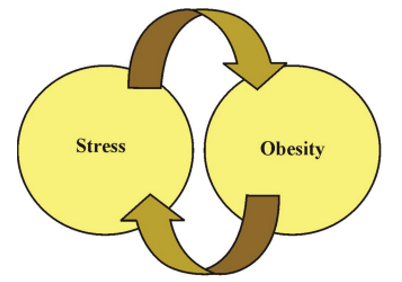
Obesity is a rapidly increasing epidemic with important consequences for public health. As I mentioned in my article ‘4 Tips for Feeling Psychologically Ready for Weight Loss Operations!‘, stress and obesity are interrelated, as one increases, the other increases.
While short-term stress can cause a person to lose their appetite, chronic stress can have the opposite effect. Stress, in the short term, causes the brain to produce an appetite-suppressing hormone called corticotrophin-releasing hormone. During times of stress, signals are also sent to the adrenal glands that trigger their production of adrenalin, which temporarily suppresses any urge to eat as part of the fight-or-flight response. Ongoing stress, on the other hand, causes the release of a hormone called cortisol. This hormone increases a person’s appetite and, if the stress does not pass, cortisol and appetite levels remain increased.

It has long been theorized that an association exists between long-term stress and obesity. Chronic stress can lead to “comfort eating,” which often involves the overeating of foods that are high in fat, sugar, and calories, which, in turn, can lead to weight gain However, studies have shown that obese individuals have high rates of depression, anxiety, and personality disorders. Many animal studies have suggested that stress affects food choices, with subjects preferring foods rich in fat and sugar when they are physically or emotionally stressed. These foods seem to inhibit brain activity involved in processing stress and anxiety, which has the effect of countering these emotions.
In addition to overeating, stress can also lead to sleep problems, decreased motivation to exercise, and increased alcohol consumption, all factors that increase the likelihood of weight gain.